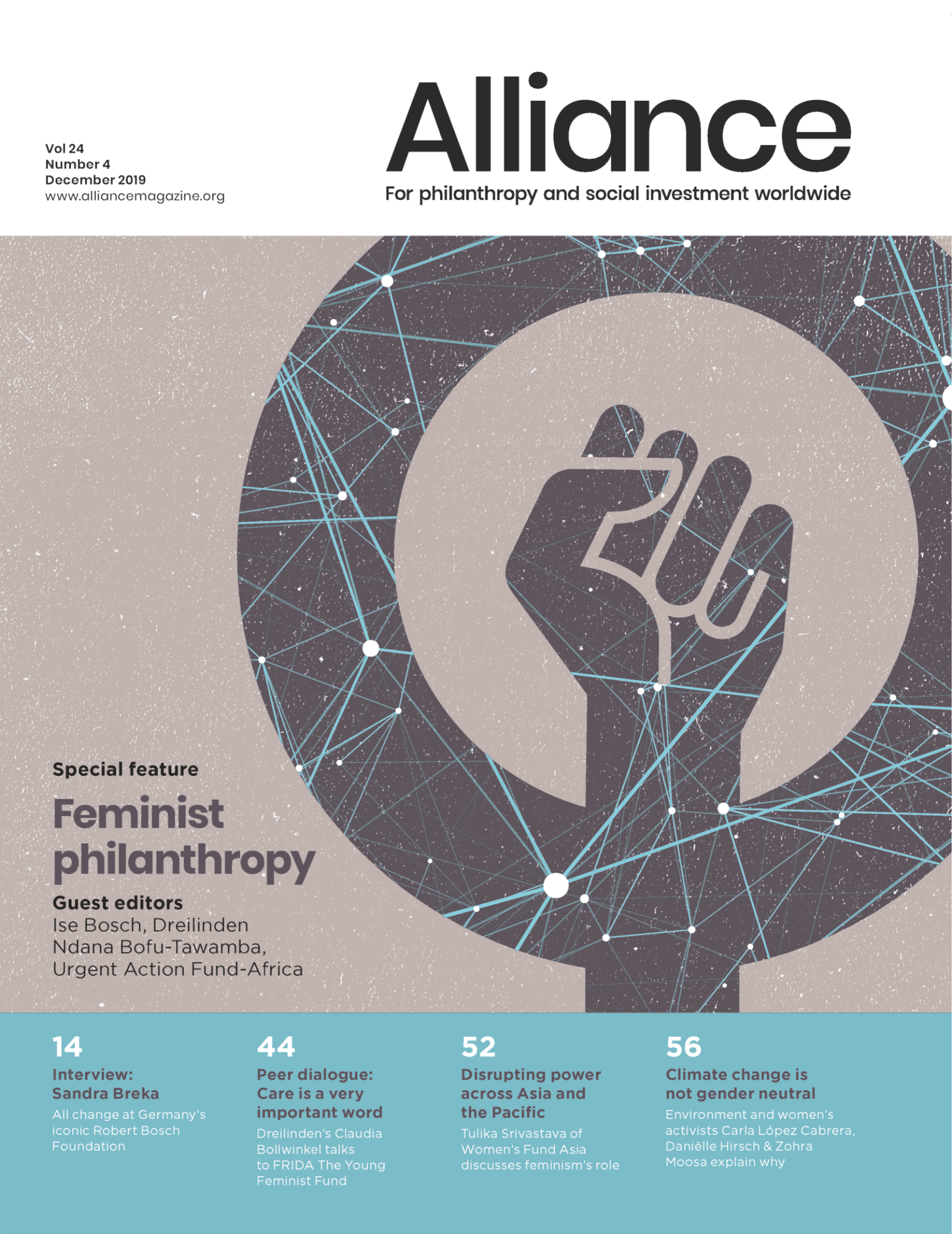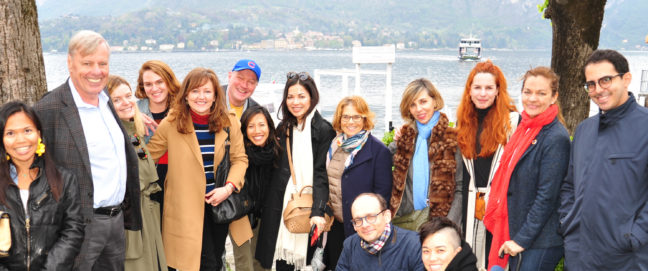A new Microsoft fund illustrates how companies can engage with communities where they have operations to help create real change
Recently, Business Roundtable leaders acknowledged that corporations have a responsibility to benefit not just shareholders but all stakeholders and the environment. While the statement signals a new direction, what might this stance look like in practice? Among other things, it will mean moving away from the transactional nature of corporate social responsibility to programmes and processes that build transformational relationships with communities. One such example is Microsoft’s new Community Empowerment Fund1, which combines elements of community-led development and participatory grantmaking to create transformational relationships through shifting and sharing power.
Most corporate social responsibility programmes are transactional by design: they ‘give back’ through volunteer days, employee fundraising drives, sponsorships, capital campaign donations, etc. Though these contributions may provide real benefit to communities, they are usually a response to the short-term needs of groups whose goodwill is important for the company’s business mandate. They are not intended to foster long-term partnerships or support communities in driving their own development.
Providing funding instead of direct programme services devolves more money and therefore more power to local organisations that already work in the community.
Technology companies, which are building large-scale data centres to power cloud computing have a growing physical presence in communities and face heightened expectations to make a positive local impact. Forward-thinking companies understand the connection between socio-economic development and a healthy market, and this creates an opportunity to go beyond transactional CSR toward a more transformational approach. Microsoft’s Community Empowerment Fund attempts this by cultivating relationships with local leaders and groups, expanding the investment beyond funding, and laying the groundwork for deeper, mutually beneficial collaboration.
The programme, which provides financial support[1] to local organisations in areas where Microsoft operates data centres, is built around four key pillars of community-led development: communities know best what their priorities are; communities have assets, not just needs; community ownership is key to sustained results; and complex problems must be tackled by examining systemic causes.
At select sites, an advisory board of leaders and Microsoft employees from the community, who bring local expertise and knowledge, identify community priorities for funding. Applications, which are solicited through an open call, are assessed on how well they: engage community members, especially from marginalised groups, in decision-making and programme design; leverage local assets; align with local priorities; work with partners; and promote solutions that address interconnected problems. The advisory board then recommends projects to Microsoft headquarters for funding. In addition to financial support, the advisory board and other Microsoft staff help organisations network, raise public awareness, and enhance operational skills through workshops, meetings, and community events. These activities strengthen connections among non-profits, local businesses, government officials and community members, increasing the possibilities for grassroots collaboration.
Ensuring the advisory boards are diverse, representative, and inclusive of people whose voices are marginalised is an ongoing, essential process.
The programme helps share power through resources, leadership opportunities and ideas. Providing funding instead of direct programme services devolves more money and therefore more power to local organisations that already work in the community. An open application call, rather than an invite-only process, allows more local groups to present their ideas and enables Microsoft staff to get to know a wider range of organisations. Community representatives comprise the majority of the board, whose members rotate regularly to bring new people into leadership roles. The top priority is ensuring that the group reflects the demographic diversity of the community as well as other characteristics such as experience and geographic representation. Finally, as the advisory board uses community-led development principles for decision-making and local organisations use the framework to design their projects, stakeholders build a community development practice together.
In its first year, the fund’s pilot advisory board in the Netherlands received 250 applications and recommended 22 projects totalling $200,000, all of which were approved by Microsoft headquarters. The Netherlands board is now entering its second year. In the US, a new board has been established in Des Moines, Iowa, and another is planned for Arizona in 2020.
Sharing power is effective only when all parties engage transparently. All stakeholders bring an agenda.
The results so far are promising, but more work is needed to refine and expand the programme. This approach to corporate philanthropy is new for Microsoft, as it is for most large corporations, and requires some cultural shifts. Community timelines vary and impact at scale will take time to realise, so making corporate leaders aware of this reality is important if the programme is to gain the traction it needs to succeed in the longer term. For many Microsoft and local stakeholders alike, grantmaking and community-led development as a practice are new. It will be necessary to continue investing in training, materials, and conversations to further the learning and to help local teams customise the programme for different contexts. Ensuring the advisory boards are diverse, representative, and inclusive of people whose voices are marginalised is an ongoing, essential process, and it will take a range of different strategies in different communities to achieve this standard.
Last but not least, sharing power is effective only when all parties engage transparently. All stakeholders bring an agenda. The key for Microsoft and community members is to make those agendas explicit to build trust. This may be the most complex aspect of all, but it gets to the heart of the Business Roundtable declaration. In this era of institutional breakdown, inequality and fear, trust is a rare commodity. Turning words into action that benefit all stakeholders requires corporations to invest first and foremost in genuine relationships that pave the way for sharing power.
Mary Fifield worked with Microsoft on the development of the Community Empowerment Fund.
Sonali George leads the Datacenter Community Advisory Board programme. They are writing in a personal capacity.
Mary Fifield is principal of Kaleidoscope Consulting.
Email: mary@meetkaleidoscope.com
Twitter: @mary_fifield
Sonali George is programme manager at Microsoft.
Email: Sonali.George@microsoft.com
Footnotes
- ^ The Community Empowerment Fund is part of Datacenter Community Development. In the first two years, the CEF awarded more than $3 million to 150 local organisations in 12 communities around the world.








Comments (0)